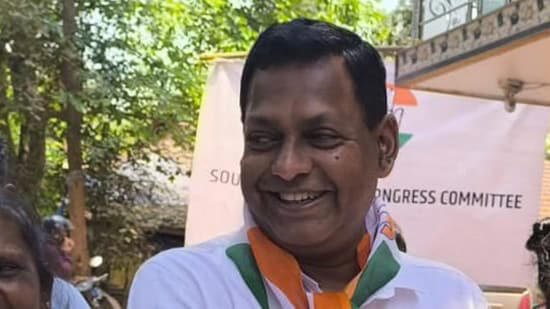A Congress candidate from Goa recently claimed that the Indian Constitution was “forced” on the state. The assertion, made by Congress candidate Yatish Naik, has ignited a heated debate over the principles of federalism, democracy, and the role of the Constitution in shaping India’s diverse political landscape. Prime Minister Narendra Modi, among others, has responded to the remarks, underscoring the significance of the Constitution and the values it upholds.
Naik’s comments came during a public rally in Goa, where he reportedly stated that the Indian Constitution was “forced” upon the state and did not reflect the aspirations of the Goan people. He further suggested that the Constitution needed to be reviewed and amended to better align with the interests of the state’s residents. These remarks have elicited strong reactions from various quarters, with many condemning them as disrespectful to the foundational document of India’s democracy.
Prime Minister Narendra Modi was among the prominent figures who responded to Naik’s remarks, emphasizing the importance of the Constitution in safeguarding the rights and freedoms of all Indian citizens. In a series of tweets, PM Modi underscored the significance of the Constitution in upholding democracy and ensuring justice and equality for all. He called on political leaders to respect the sanctity of the Constitution and work towards strengthening India’s democratic institutions.
The controversy over Naik’s remarks reflects broader debates over federalism and regional autonomy within India. Since gaining independence in 1947, India has grappled with the complex interplay between national unity and regional diversity, with the Constitution serving as the guiding framework for balancing these competing interests. While the Constitution provides for a federal structure that grants significant autonomy to individual states, it also establishes a strong central government with powers to ensure unity and integrity across the nation.
Critics argue that Naik’s comments undermine the principles of federalism and threaten to sow seeds of division and discord among India’s diverse states. They contend that the Constitution was drafted through a democratic and consultative process involving representatives from across the country and reflects the collective aspirations of the Indian people. Any attempts to question or undermine the Constitution risk undermining the foundations of India’s democracy and the rule of law.
Moreover, Naik’s remarks raise questions about the role of political leaders in promoting responsible and constructive discourse. As representatives of the people, politicians have a responsibility to uphold the values enshrined in the Constitution and foster an environment of mutual respect and understanding. Divisive rhetoric and inflammatory statements only serve to deepen societal divisions and undermine the democratic fabric of the nation.
In response to the controversy, leaders from various political parties have called for greater sensitivity and respect for constitutional norms and principles. They have urged political leaders to refrain from making statements that undermine the integrity of India’s democratic institutions and to engage in constructive dialogue to address grievances and concerns.
The incident also underscores the need for greater civic education and awareness about the importance of the Constitution in shaping India’s political landscape. As the foundational document of India’s democracy, the Constitution plays a crucial role in safeguarding the rights and freedoms of all citizens and ensuring a just and equitable society. Educating citizens about the principles and values enshrined in the Constitution is essential for fostering a culture of democratic citizenship and promoting civic engagement.
In addition, the controversy over the Congress candidate’s remarks about the Constitution reflects broader debates over federalism, democracy, and the role of political leaders in shaping India’s political discourse. Prime Minister Narendra Modi’s response underscores the significance of the Constitution in upholding democracy and ensuring justice and equality for all citizens. As India continues to grapple with the complexities of its diverse political landscape, it is imperative that political leaders and citizens alike uphold the values enshrined in the Constitution and work towards building a more inclusive and democratic society.

